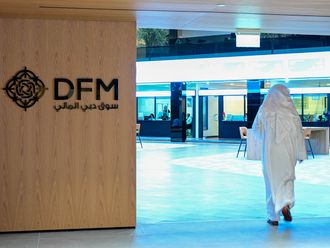The oil market is so proactive that it gets wet before the rain. Organisation of the Petroleum Exporting Countries (Opec) and other producers’ efforts were enough to let prices slowly inch upwards albeit with a lot of volatility.
It took a geopolitical incident to push prices upward by almost $2.30 (Dh8.45) a barrel within hours. Kurdistan’s vote in favour of independence and the reaction of the Iraqi, Turkish and Iranian governments were the reasons behind price movement. Brent prices jumped from $56.32 to $58.7 a barrel on September 25.
This triggered supply concerns as Turkey said that it may shut the pipeline delivering Iraq crude oil from the region to the terminal at Ceyhan. The Iranian government immediately stopped oil products delivered by trucks into and from the region.
At the same time, Iraq announced a set of decisions aimed at pressurising the regional government to abandon any notion of going ahead with a secession based on a vote that it said will never recognise. The airports of Erbil and Sulaymaniyah already saw their last international flights and the government is preparing to take control of border entry posts leading from the region to Turkey and Iran.
Oil prices however eased as it became evident that closure of the pipeline from the Kurdish region is not yet imminent. As I write, Brent is $56.74 a barrel and heading down.
Apparently, all parties are playing a waiting game to see what the next step of Barzani, the president of KRG, would be. While it has been made clear to him that the Iraq government would take further action as directed by the parliament, Turkey and Iran were much more vocal and vehement in what they may do to stop any notion to establish an independent Kurdish state in the North of Iraq.
For them, as much for Iraq, it is a matter of national security, and in this case threatening economic sanctions and military intervention is not unusual.
The economic hardship that can be inflicted would be tremendous especially if the pipeline is shut or even if Turkey decided to deal only with the Baghdad government in the export of oil, as Baghdad has often demanded. And all the proceeds would go to Baghdad before KRG gets its share.
The situation is inflamed by the insistence of Barzani to include what is called the “disputed territories” in his referendum. These are large swathes of the country where, while Iraq was busy fighting Daesh, the Kurds have taken these territories, including oil-rich Kirkuk, under their control.
Last month, the KRG exported about 580,000 barrels a day through Turkey. But almost half of this comes from fields that were under the central government jurisdiction until mid-2014 when the Daesh problem erupted.
Economically and financially, the KRG is in a difficult situation where it has about $3 billion debt for prepaid oil sales. Previously, it offered to sell oilfields to the tune of $5 billion to Turkey to be able to pay foreign oil firms. It also relinquished its share of 20 per cent in the DNO and Genel Tawke field, which produces 110,000 barrels a day.
At the same time, some oil companies such as Total, ExxonMobil and others totally or partially exited the region as it became obvious that oil resources there are hyped and are less lucrative than thought. The claim that the region has oil reserves of 45 billion barrels needs to be substantiated.
The recent settlement with Pearl Consortium would cost KRG $2.24 billion according to the arbitration tribunal, although this is agreed to be settled by an immediate payment of $1 billion and incentives to the consortium to resume its activities in the region. But where would the $1 billion come from? Surely from sacrificing future revenue because of KRG’s inability to pay its debts.
As if all this is not enough, the crown jewel of KRG oilfields, Taq Taq, has suffered a steep decline in production, which forced its operator, Genel Energy, to reduce its reserves for the second time. In 2015, Taq Taq reserves were reported at 683 million barrels. This was downgraded to 172 billion in February 2016 and now it is said to be 59 million barrels. Taq Taq production was 145,000 barrels a day and now it is only 19,000.
The promise that the KRG would produce one million barrels a day by now is pitiful as the KRG cannot manage more than 225,000 barrels a day. And even if it still occupies all of Kirkuk fields, it cannot reach the promised target.
In my view, the problem dates back to the occupation of Iraq and the political process that emanated from it. For 14 years the government in Baghdad never dealt firmly with the deliberate encroachment of the KRG.
It was always the side that gave way. What makes us believe that this time around the situation will be different?












